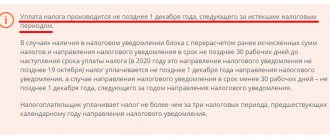An example from judicial practice.
Relatives of a man who was detained for stealing items from a store in the Galereya shopping center contacted me. At first glance, the situation is standard, and it would seem that what was committed would be qualified under Art. 7.27 of the Code of Administrative Offenses of the Russian Federation (petty theft), or under Article 158 of the Criminal Code of the Russian Federation (theft), depending on the amount of theft. However, upon arriving at the police department, it turned out that my client, instead of stopping and handing over the stolen items, got scared, ran and was caught by the shopping center security officers. Thus, he aggravated his situation and a criminal case was opened under Part 1 of Article 161 of the Criminal Code of the Russian Federation. Under this article, the punishment provides for up to 4 years of imprisonment, and given the lack of registration in St. Petersburg, my client was threatened with arrest. An arrest was avoided, but the defense in the criminal case did not end there.
Together with my client, it was decided to seek dismissal of the criminal case. Since the defendant was caught at the time of committing the crime, the stolen items were with him, and a large number of video cameras in the Galereya shopping center and video recordings from them did not testify in our favor, it was decided to seek the termination of the criminal case through the trial of the parties or a court fine.
Problems arose with the reconciliation of the parties - the store from which the items were borrowed belonged to a large retail chain, and the director of a particular store did not have the authority to try on a criminal case. There was only one option left - to seek the termination of the criminal case using a criminal law measure in the form of a court fine.
To impose a court fine, the following conditions must be met:
- A person is brought to criminal responsibility for the first time
- Minor or moderate crime
- The person compensated for the damage or otherwise made amends for the harm caused by the crime
My client was brought to criminal responsibility for the first time, a crime under Part 3 of Art. 30 Part 1 Art. 161 of the Criminal Code of the Russian Federation refers to crimes of medium gravity, i.e. two of the three conditions were met. It remains to fulfill the third condition, and here some difficulties arose. Firstly, since the accused was charged with attempted robbery, and the things were returned immediately after the arrest, no actual damage was caused. It was decided to make a written apology and transfer a sum of money equal to the cost of the items to the organization’s account. After fulfilling the last condition during familiarization with the materials of the criminal case, we filed a petition for a preliminary hearing in the case. After the criminal case was submitted to the court, a petition was filed to terminate the criminal case using a criminal law measure in the form of a court fine. At the preliminary hearing, this petition was supported in full and the judge of the Smolnensky District Court of St. Petersburg issued a decision to terminate the criminal case using a criminal law measure in the form of a court fine in the amount of 10,000 rubles. Thus, the criminal case under Part 3 of Art. 30 Part 1 Art. 161 of the Criminal Code of the Russian Federation was terminated. My client avoided real imprisonment and a suspended sentence, and did not receive a criminal record.
A correct assessment of all the circumstances and the correct decision on defense tactics, thanks to the experience and knowledge of a criminal lawyer, allowed us to achieve the best possible result in this criminal case. The client was satisfied with the lawyer's work.
Need help from a criminal lawyer? - contact us!
How the Criminal Code article on disclosure of preliminary investigation data is used against lawyers
1K 1 2 min.
Defenders told Kommersant how the TFR charged Ivan Pavlov Art. 310 (“Disclosure of preliminary investigation data”) of the Criminal Code is used against lawyers.
Lawyer of the Moscow Chamber Konstantin Rivkin
called the article on the disclosure of preliminary investigation data brought against Ivan Pavlov “a stranglehold that investigators often use to silence the defense.” “At the same time, the investigation itself in such high-profile cases as Ivan Pavlov, in particular, is involved in, has quite a lot of opportunities: either the press secretary talks about the circumstances of the case, or the leadership of the law enforcement agencies themselves comes out to comment on TV,” the lawyer told Kommersant. “We have repeatedly encountered the fact that the media, which cooperate with law enforcement agencies, present the version of the prosecution. And when the defender or his client wants to object, talk about existing violations in the case, ring the bells - in this case, their hands are tied, and the lawyer is required to sign under Article 310.”
Mr. Rivkin recalled that there is an explanation from the Constitutional Court, according to which the investigator should not sign a subscription “on non-disclosure of everything”, but must clearly indicate in it “what exactly cannot be disclosed”: “From the point of view of global practice, issues related to the violation of rights and human freedoms and violations of the law by government authorities cannot be kept secret as such. The same is stated in our law on state secrets,” the lawyer clarified. He considers the initiation of a criminal case against Ivan Pavlov “a deterrent for all other lawyers.” “Ivan Pavlov is one of the most active lawyers working in the category of cases that belong to the FSB department,” explained Mr. Rivkin. “This is a very clear signal: since such a well-known lawyer was given a slap on the wrist, a criminal case was opened, the rest can generally be wiped off their feet.” and do whatever they want."
Lawyer Anna Stavitskaya
told Kommersant that “the investigation requires a signature in almost every high-profile case.” She believes that the investigators’ claims against Ivan Pavlov “have the purpose of putting pressure on the lawyer in connection with his professional activities.” Further developments depend on “how the legal community behaves,” Ms. Stavitskaya believes: “It is obvious that the actions against Ivan were taken with the aim of intimidating lawyers. Therefore, it depends on the lawyers themselves whether law enforcement officers will achieve their goals.” Anna Stavitskaya added that Mr. Pavlov’s colleagues created a petition in his defense on April 30.
Deputy Chairman of the Commission of the Council of the FPA of the Russian Federation for the protection of the rights of lawyers, Vice-President of the St. Petersburg Bar Association Yuri Novolodsky
told Kommersant that the council of the St. Petersburg chamber intends to officially express the point of view of the community: “With regard to the investigative and prosecutorial authorities, our assessment is negative, because they do not seem to intend to comply with the current legislation. They are doing this in vain: the lawyer community of St. Petersburg does not intend to tolerate this, and I think that all lawyers in the country will support our St. Petersburg position.” Mr. Novolodsky believes that society is interested in organized control over the investigation: “This must not be missed so that the terrible events of the 1930s do not repeat themselves. Yes, the law has some restrictions - for example, you cannot disclose state secrets. Ivan Pavlov signed a non-disclosure agreement, and he did not disclose anything that is included in this concept. He is accused of divulging investigative secrets. But, unfortunately, representatives of the investigative and prosecutorial authorities do not always understand the difference between these concepts. If the investigator believes that the disclosure of part of the data may harm the interests of the investigation, he must make a reasoned decision and familiarize the lawyer with this document. In this case, there was no such resolution, and the lawyer is faced with a choice: either completely forget what he learned during the investigation, or become a defendant in a criminal case. We do not agree with this formulation of the issue.”
Alexander Chernykh, Maria Litvinova, Marina Tsareva, St. Petersburg
Commentary to Art. 310 of the Criminal Code of the Russian Federation
The main object of disclosure of preliminary investigation data is the interests of justice. The interests of the individual may act as an additional object.
The social danger of a crime lies in the fact that unauthorized disclosure of preliminary investigation data can significantly affect the interests of justice: the accused can hide from the investigation and trial, hide the proceeds of crime, warn his accomplices or otherwise prevent the establishment of the truth in the case; disclosure of this data may create an incorrect public opinion about the person accused of committing a crime, the victim of the crime, and other participants in the process; it can negatively affect the relatives and friends of both the subject of the crime and other persons.
The requirement of inadmissibility of disclosure of preliminary investigation materials is also contained in Art. 161 Code of Criminal Procedure of the Russian Federation. According to Part 2 of this norm, the investigator or interrogating officer warns the participants in criminal proceedings about the inadmissibility of disclosing without appropriate permission the data of the preliminary investigation that has become known to them, for which they sign a warning with a warning of liability in accordance with Art. 310 of the Criminal Code of the Russian Federation. Violation of the requirements specified in the subscription is a procedural basis for bringing the perpetrators to criminal liability.
As for the investigators themselves, maintaining official secrets is their professional responsibility.
Since Art. 310 of the Criminal Procedure Code of the Russian Federation (as well as Article 161 of the Criminal Procedure Code of the Russian Federation) does not define a list of data that cannot be disclosed; this should include any information contained in a criminal case.
The objective side of the crime consists in the disclosure of preliminary investigation data by a person who has been warned about the inadmissibility of their disclosure if it is committed without the consent of the prosecutor, investigator or person conducting the inquiry. An act can only be accomplished by action.
The preliminary investigation is carried out by investigators and interrogators.
Disclosure should be understood as the unlawful making public of preliminary investigation data, regardless of the form of such communication (oral, written, in the media, etc.) and the occurrence of any consequences.
According to the design of the objective side, this composition is formal. The crime is considered completed from the moment the preliminary investigation data is made public, when this information becomes known to at least one outsider who understands the meaning of the disclosed information. If the specified outsider is not able to understand the meaning of the disclosed information for various reasons, then there is an unfinished crime - an attempt to disclose preliminary investigation data (Part 3 of Article 30, Article 310 of the Criminal Code of the Russian Federation).
From the subjective side, the disclosure of preliminary investigation data is carried out with direct intent.
The culprit is aware that the authorized person has imposed a ban on the dissemination of preliminary investigation data, that disclosure will make the relevant information available to third parties, and wishes to make the investigation data available to outsiders.
The subject of a crime is a person who has been warned in accordance with the procedure established by law about the inadmissibility of disclosing information that constitutes a secret of the preliminary investigation (special subject). The prevention factor in this case is a mandatory element of the crime. Therefore, the disclosure of preliminary investigation data in the absence of a warning does not constitute a crime under Art. 310 of the Criminal Code of the Russian Federation.
Disclosure of preliminary investigation data by an official of the court, investigative or inquiry bodies, to whom such information became known due to the nature of their official activity, may, under the appropriate conditions, entail liability for malfeasance: under Art. 285 of the Criminal Code of the Russian Federation - in the case of an intentional form of guilt in the form of intent and under Art. 293 of the Criminal Code of the Russian Federation - in the case of a careless form of guilt and in the presence of the consequences specified in the disposition of Art. 293 of the Criminal Code of the Russian Federation.
General concept of investigative secrecy
The secrecy of the investigation of the Criminal Procedure Code is certain actions of law enforcement officers during the investigation or evidence already collected, as well as some points that must be kept secret. The secrecy of the preliminary investigation of the Criminal Code of the Russian Federation is, first of all, necessary to ensure that information from a particular case does not fall into the hands of fraudsters, witnesses, victims or other private participants in the criminal process. Disclosure of it may entail irreparable consequences and, accordingly, violate the legitimate rights and interests of subjects of criminal proceedings.
Law enforcement officials have permission to disclose case materials, and only on the condition that the publicity will not negatively affect the investigation and the interests of those involved in the case will not be violated as a result. It should be noted that secrecy is imposed on certain materials from the case for investigators. They cannot disclose personal information of those involved in the process, since this is personal data.
The secrecy of the investigation article of the Code of Criminal Procedure of the Russian Federation does not consist of one single list of data and materials prohibited from disclosure; in each specific case, officials themselves decide what information can be disclosed and what should be left confidential. The Criminal Procedure Code requires that all persons involved in the investigation sign a non-disclosure document; this document is taken from the persons involved in the case by the investigator or interrogating officer. The secrecy of the investigation extends to the following participants in the process:
Industrial espionage and disclosure of trade secrets in Article 183 of the Criminal Code of the Russian Federation
- victim;
- defender;
- civil plaintiff;
- witness;
- expert;
- translator;
- witness;
- representative of the victim;
- persons who participate in the identification;
- other persons (at the discretion of the investigator).
Maintaining the secrecy of the investigation allows one to avoid mutual accusations before the court pronounces a verdict, ensures the safety of witnesses and other participants in criminal proceedings, and also protects the honor and dignity of the suspect himself before he is found guilty.
Based on the Code of Criminal Procedure of the Russian Federation, it should be noted that a non-disclosure agreement cannot be submitted to the accused or suspect. Russian law does not allow you to refuse a non-disclosure agreement. But, you can abandon the general formulation, explaining this by the fact that due to the signing of an ordinary non-disclosure document, a person will not even be able to contact a lawyer. In such situations, the investigative body must specify what can be made public and this will not affect the investigation, and what cannot. Before signing a non-disclosure document, you need to carefully study the contents. It often happens that the subscription itself does not contain specific data, but only contains a general phrase about non-disclosure. This formulation is incorrect; by forcing the persons involved in the case to sign such a document, the investigator himself is violating the law, because the items of confidential information must be clearly indicated.
If, after signing a document, the persons involved in the case tell someone the materials previously known to them, this is not a violation of the subscription. A violation would be the disclosure of data obtained in a private conversation with an official, which was not known to the person before the conversation.
The refusal of a participant in criminal proceedings to sign a non-disclosure agreement does not relieve the person from liability, and in some cases, it is even grounds for the removal of this participant from the case.






